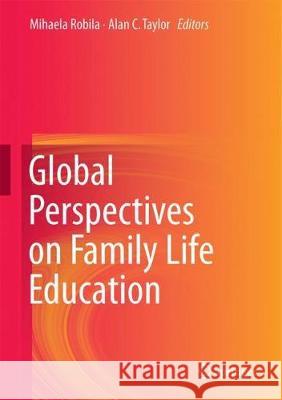Global Perspectives on Family Life Education » książka
topmenu
Global Perspectives on Family Life Education
ISBN-13: 9783319775883 / Angielski / Twarda / 2018 / 418 str.
Kategorie:
Kategorie BISAC:
Wydawca:
Springer
Język:
Angielski
ISBN-13:
9783319775883
Rok wydania:
2018
Wydanie:
2018
Ilość stron:
418
Waga:
0.95 kg
Wymiary:
25.4 x 17.78 x 2.39
Oprawa:
Twarda
Wolumenów:
01
Dodatkowe informacje:
Wydanie ilustrowane











